WELCOME TO SAINT JOSEPH MONTESSORI
Peace is what every human being is craving for, and it can be brought about by humanity through the child.
~ Maria Montessori
Peace is what every human being is craving for, and it can be brought about by humanity through the child.
~ Maria Montessori
OUR APPROACH TO STUDENT FORMATION
The young child possesses a natural capacity for wonder. This wonder is first cultivated in the home through the life of the family and a world of play. As the child grows, he naturally reaches toward new experiences. The Montessori at St. Joseph Academy provides a peaceful space for the child to develop his curiosity and encounter truths in a manner that is accessible to his experience. Children are guided by faithful teachers who share in the child's experience of wonder and awe. The Montessori teacher is a lover of wisdom whose aim is to guide the young child to the pursuit of truth, goodness, and beauty with the recognition that Jesus Christ is the origin of all wisdom.
At St. Joseph Academy, our Montessori is designed to foster a unity between the Montessori method and a classical curriculum. Both begin with the child's experience of wonder, both challenge the child to pursue truth, and both aid the child in being an active participant in an education rooted in excellence. In this way, both are ordered toward the good of the child and human flourishing.
Catechesis of the Good Shepherd
Catechesis of the Good Shepherd fosters an encounter with God and a personal delight in his love. An environment called the Atrium, particularly prepared for the religious life of the child, allows children the structured freedom to contemplate and enjoy a relationship with God. In this environment, children encounter the sacramental and doctrinal treasures of the Catholic faith. Through this encounter, children learn both the truths of our Catholic faith as well as how those truths impact their personal daily life. As in a classical curriculum, children in the Atrium learn to discover and ponder truth, make connections, and embrace the beauty and goodness of Jesus as their lifelong treasure. Catechesis of the Good Shepherd, concluding in Sixth Grade, preserves and fosters a child's openness of heart, paving the way for further exciting inquiry and discovery in upper grade scripture and theology.
At St. Joseph Academy, our Montessori is designed to foster a unity between the Montessori method and a classical curriculum. Both begin with the child's experience of wonder, both challenge the child to pursue truth, and both aid the child in being an active participant in an education rooted in excellence. In this way, both are ordered toward the good of the child and human flourishing.
Catechesis of the Good Shepherd
Catechesis of the Good Shepherd fosters an encounter with God and a personal delight in his love. An environment called the Atrium, particularly prepared for the religious life of the child, allows children the structured freedom to contemplate and enjoy a relationship with God. In this environment, children encounter the sacramental and doctrinal treasures of the Catholic faith. Through this encounter, children learn both the truths of our Catholic faith as well as how those truths impact their personal daily life. As in a classical curriculum, children in the Atrium learn to discover and ponder truth, make connections, and embrace the beauty and goodness of Jesus as their lifelong treasure. Catechesis of the Good Shepherd, concluding in Sixth Grade, preserves and fosters a child's openness of heart, paving the way for further exciting inquiry and discovery in upper grade scripture and theology.
"Let the children come to me; do not prevent them, for the kingdom of God belongs to such as these.
Amen, I say to you, whoever does not accept the kingdom of God like a child will not enter it."
Mark 10:14-15
Gallery
|
Montessori students are empowered to pursue the good, the true, and the beautiful. They are free to work in sustained productive activity toward mastery of the skills they crave. A structured environment that meets the child’s needs at each stage of development fosters this freedom and feeds a child’s appetite for a life of discovery. |




